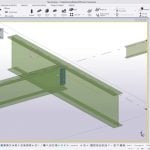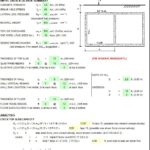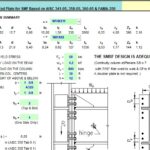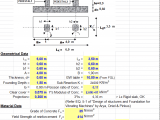
5 Common Mistakes Recent Engineering Grads Make on Their First Job (And How to Avoid Them)
27 June 2025Table of Contents
5 Common Mistakes Recent Engineering Grads Make on Their First Job (And How to Avoid Them)
Congratulations! You’ve navigated years of tough classes, late-night study sessions, and challenging exams. You have your engineering degree and you’ve landed your first job. This is a huge accomplishment.
But the transition from university theory to real-world engineering practice can be a shock. The challenges you face in the workplace are often completely different from what you saw in your textbooks. While technical skills are your foundation, your success in the first year is often determined by your habits, attitude, and ability to adapt.
Many junior engineers stumble over the same hurdles. The good news is that these mistakes are entirely avoidable. By understanding them upfront, you can bypass the learning curve and position yourself as a valuable, fast-learning member of the team from day one.
Here are the five most common mistakes recent engineering grads make, and what you should do instead.
1. Not Asking Enough Questions (Or Asking Them at the Wrong Time)
Many recent grads stay quiet, nod along in meetings, and then struggle in silence, wasting hours trying to solve a problem that a senior engineer could clarify in two minutes.
The Mistake: You assume you should know everything, so you avoid asking for clarification on tasks, acronyms, or processes. This leads to wasted time, incorrect work, and potentially costly errors.
The Solution: Ask Smart, Not Hard.
-
Try First, Then Ask: Before you interrupt a colleague, spend a reasonable amount of time (e.g., 15-30 minutes) trying to find the answer yourself. Check internal documentation, search previous project files, or do a quick web search.
-
Batch Your Questions: Instead of interrupting a senior engineer every 10 minutes, keep a running list of your non-urgent questions. Find a good time to ask them all at once, such as during a daily check-in or when they are not deep in focus.
-
Be Specific: Don’t just say “I’m stuck.” A better approach is: “I’m trying to calculate the thermal load for component X. I’ve reviewed the project spec sheet Y, but I’m unsure which material property to use for the simulation. Could you point me to the right documentation?”
2. Neglecting the “Boring” Work of Documentation
In university, the project is done when you submit the final report. In the professional world, the project isn’t truly done until it’s properly documented. Junior engineers often see documentation as a tedious afterthought, but senior engineers know it’s one of the most critical parts of the job.
The Mistake: You perform a calculation, write a piece of code, or make a design change without clearly documenting your assumptions, sources, and steps.
The Solution: Document As You Go.
Good documentation is a gift to your future self and your team. It prevents knowledge from being lost, makes your work easy to verify, and saves immense time down the road.
-
Comment Your Code: If you’re in a software-related field, explain whyyou wrote a function, not just what it does.
-
Keep a Decision Log: For design projects, maintain a simple log of key decisions. Why did you choose steel instead of aluminum? Why is that tolerance set to +/- 0.5mm? Note the date, the decision, and the reason.
-
Organize Your Files Logically: Use clear, consistent naming conventions for your files and folders. Your future self will thank you when you have to find something six months later.
3. Underestimating the Importance of Soft Skills
You were hired for your technical abilities, but you will be promoted based on your ability to work with others. Communication, teamwork, and understanding business context are not “soft” skills; they are essential professional skills.
The Mistake: You keep your head down and focus only on your assigned technical tasks, ignoring the people and processes around you.
The Solution: Engineer Your Relationships.
-
Listen in Meetings: Pay attention even when the topic isn’t directly related to your task. Understanding the business goals, budget constraints, and customer feedback will make you a better engineer.
-
Learn from Technicians and Operators: The people on the shop floor or in the field have invaluable hands-on experience. Show them respect, ask for their input, and listen to their feedback. They often understand the practical implications of a design better than anyone.
-
Practice Explaining Technical Concepts Simply: A key skill is being able to explain a complex engineering problem to a non-technical manager or client. If you can’t explain it simply, you may not understand it as well as you think.
Expert Tip from The Engineering Community:
“The best junior engineers I’ve worked with are the ones who aren’t afraid to walk down to the manufacturing floor. They don’t just email a drawing; they talk to the machinist who has to actually make the part. That’s how you learn and earn respect.”
– (Insert real user quote from your community here)
4. Being a “Solution-First” Engineer
In school, you are given well-defined problems with clear inputs and a known correct answer. In the real world, the first and most important step is often defining the problem itself.
The Mistake: A manager gives you a task, and you immediately jump into designing a solution without first deeply understanding the underlying problem you’re trying to solve.
The Solution: Fall in Love with the Problem.
Before you open your CAD software or start coding, take a step back and ask critical questions:
-
“What is the ultimate goal we are trying to achieve with this?”
-
“Who is the end-user, and what do they really need?”
-
“What are the real constraints (budget, timeline, materials)?”
-
“Is there a simpler, non-technical solution we are overlooking?”
This approach ensures you are solving the right problem and prevents you from creating an elegant solution to the wrong one.
5. Not Owning Your Career Development
Your manager and your company have a vested interest in your growth, but no one cares more about your career than you do. Don’t passively wait for training or opportunities to be handed to you.
The Mistake: You assume that if you just do your job well, the company will automatically map out the perfect career path for you.
The Solution: Be the Project Manager of Your Own Career.
-
Seek Feedback Proactively: Don’t wait for your annual performance review. After completing a significant task, ask your manager or a senior mentor, “What is one thing I could have done better on that project?”
-
Build Your Network: Have lunch with people from other departments. Join discussions in professional forums (like The Engineering Community’s forums) to learn from peers outside your company.
-
Keep Learning: The technology you use today could be obsolete in five years. Identify the skills that are in high demand in your industry and find ways to learn them, whether through online courses, internal training, or side projects.
Your first year is a marathon, not a sprint. By focusing on continuous learning, clear communication, and professional humility, you can avoid these common pitfalls and build a strong foundation for a long and successful engineering career.







